- Learning time
- 60 minutes
- First play time
- 180 minutes
Anno 1800
Designed by: Martin Wallace
Based – very loosely – on the video game of the same name, Anno 1800 sees the players develop their own island over time, from producing basic resources like brick and wool to luxury goods such as champagne and chocolate. How all this is done, and how you win, looks at first glance completely bonkers. But it’s not quite as mad as it looks.
Everyone has their own board representing their island, a bunch of cards, and several workers (cubes) of different colours: the colours showing the type of work they do: green are farmers, red are engineers, blue are basic workers and so on. The colour/type of worker is relevant because they during the game you’ll be sending them out to work at your growing industries – as mentioned above, you begin with several on the board, but will be adding more. On your turn, you take a single action (exception – there are some small ‘free’ actions you can take at any time) and although there are a number to choose from the basics are this: your goal is to play cards, and to play cards you need to have the products they demand. So if I have a card that wants sewing machines, champagne and wood, for instance, I start with wood available but will need to develop the latter goods before I can play the card – and often, this is a staggered process: before I can develop champagne, for instance, I need to develop schnapps. Once I have the things I need available to me, I can send my worker cubes out to the appropriate place to ‘pay’ to play the card!
So another action is developing industry: again, this involves workers again generating what you need for them. Developing sausages, for instance (yes, you can) means sending a farm worker to a pig farm, and an engineer to a coal plant. There is a way to by-pass this production, which is trading with other players. Everyone begins with three ship tiles – two trade, one exploration – and you can use a trade ship to get the good you need off a player who already produces it (the player in question receives a payment from the bank). The exploration ships can be used to expand your board: it’s slowly filling up with more industry, more ships, more shipyards (used to build more ships for further trade/exploration) and you’re running out of room for anything. When you explore you expand your home board, giving you additional space.
The other thing you’re running out of is your worker cubes: there are two ways to reset and allow you to re-employ them. One is paying gold to send them home – an expensive but sometimes helpful (free) action. The other is holding a fiesta: mechanically, it means you miss a turn, but you get to send all your workers home and reset your trade and exploration ships as well, making everything you have available again.
There are some other things in the mix: you can upgrade workers (eg change a farmer to an engineer) change cards, collect Expedition cards for additional points, and each game also has five distinct possible end-game bonuses (Leader cards) that vary from play to play. But the heart of it is the idea of improving one’s lot; working through a sort of microcosmic revolution of industry on your own island. The game ends when any one player plays their last card (there’s a bonus for doing so) before scores are tallied from your played cards, Expeditions, and Leader bonuses.
The guru's verdict
-
Take That!
Take That!
Very little - the most interaction here is in trade, which is generally a good thing for both parties.
-
Fidget Factor!
Fidget Factor!
Very high on that exploratory first visit, but dropping substantially as the spinning cogs of Anno whirl into focus. An excellent design decision to keep each player to a single action per turn means the game speeds up quite a bit - for sure, some times there'll be a pause for thought. But many turns will be pre-planned and swiftly executed.
-
Brain Burn!
Brain Burn!
The heart of the game is working out how to get your cards from your hand to the table, so it's not too onerous: if you've three cards that demand beer, for instance, you probably want to build a beer industry. If only one demands cotton, you might trade for that instead. For sure, there are other considerations, but if you focus on that as a primary objective, other things begin to suggest themselves out of necessity.
-
Again Again!
Again Again!
Huge variety here, from the asymmetric starting hands to the varied Leader cards to the ramifications of player decisions.

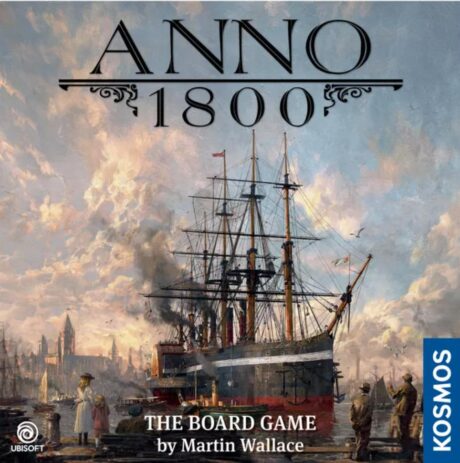
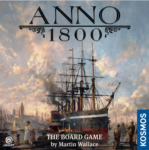
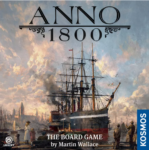
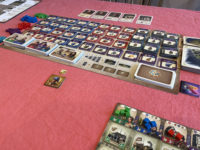
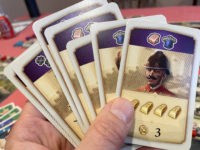
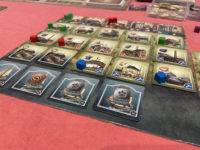
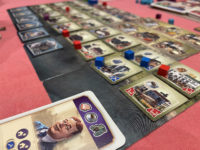


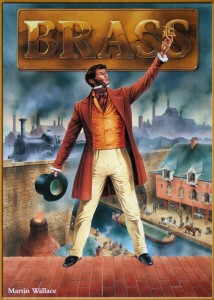
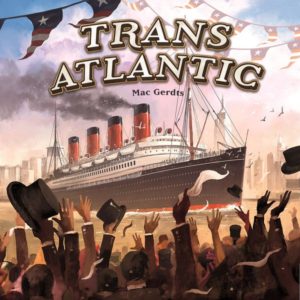
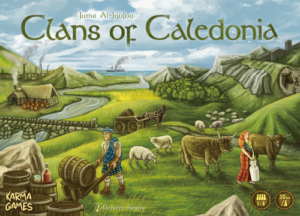
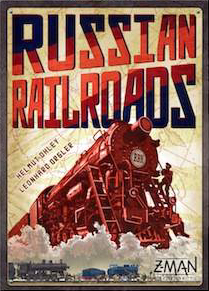
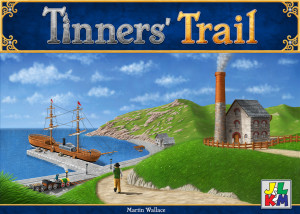
Sam says
Yes, it does look like a spreadsheet! And for gamers searching adventure on the high seas, clashes of steel or political chicanery, Anno 1800 is really not that. Designer Martin Wallace is more interested here in the evolution of industrial infrastructure; the sense of building something and doing so in a way that out-evolves other nascent industrializers - and outclasses your opponents. Like the video game that inspired it, Anno is about starting small and generating a sense of power and opportunity. And while it can seem puzzly and abstracted, it also - if you like this sort of thing - fizzes with the little moments: not just the making of something, but the knowledge of where it leads, and the recognition of spotting the idea in the first place. Rather than pulling the levers on the factory floor, you are wielders of power and knowledge: great planners and innovators, schemers and instigators. As such it's maybe not a family game in the classic sense, but it has its own sense of engagement, and you don't need to love spreadsheets to appreciate it.